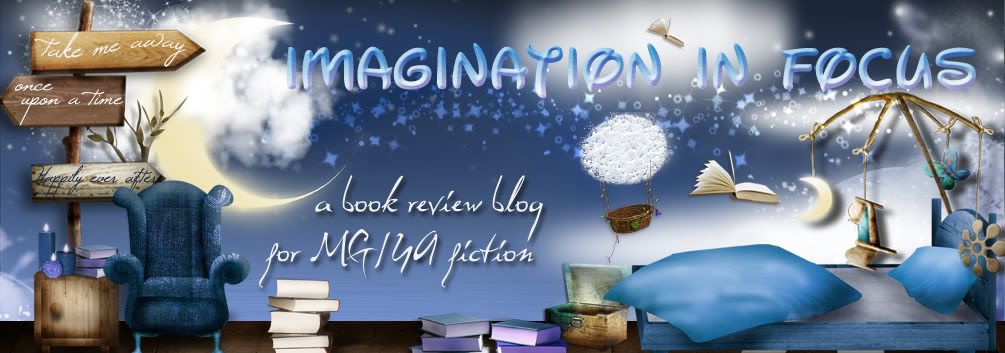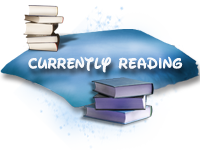
I realized that I never exactly laid out a post explaining my reviews. The closest I ever came to doing so was my rating system post, but after looking at some of my reviews, and likewise reading reviews on Goodreads, I started wondering about the process of writing reviews and before long, my mind started rambling, kind of like it's doing now.
I don't know about you, but I kind of look for patterns between my reviews and other people's reviews, too. I realized that I never told yall what I think is important when I write my reviews, the things that I look for, and the things that matter specifically to me. I always thought they were obvious, but now I'm seeing that reviewing is actually pretty extensive and complex.
So I'm going to explain myself and my reviews, and hopefully they'll make more sense from now on.
#1. The most important factor that I consider, when writing my reviews, is ENJOYABILITY. Did I have an overall enjoyable reading experience? Was it a fun, entertaining read? I don't do this for any other reason, right now, than for pure personal enjoyment. Therefore I kind of want to have a good reading experience. Some books were enjoyable but not necessarily 'fun' (I love this book so much, but Speak was not a *fun* read, and I think those who have read the book know what I'm talking about. I'm ever so glad I read it, but I usually don't read books like it, because I like to be uplifted and entertained in my personal time. Ditto for The Kite Runner - another excellent book, but not really a *fun* reading experience).
#2. The 'What the Bleep is the POINT?!' factor.
As much as I like being entertained, I also want to feel like my time wasn't wasted. I want to know why an author bothered to write a story in the first place, and so I look for themes and messages in books. The stronger a message or theme, the more likely I am to give a better grade. A lot of books out there, I've discovered, are fun and entertaining but not exactly substantial (read: Mortal Instruments series). That sounds like such a teacher-thing to say, doesn't it? Yeah, I like it when authors have a point they're trying to make. I actually like books that teach. The current book I'm reading - I'm kind of having an issue with this factor, because I know the author wants me to learn something, but I'm just not exactly sure what it is... hmm!
#3. Technical Writing factor.
This answers the question, 'Was it well-written'? Did it employ the oft-praised (by English teachers) narrative structure? Did it make use of literary terms: how 'bout them metaphors/similes/allusions? I don't know about yall, but some books just seem way more 'put together' than others. Did the author impress me with his/her vocabulary? Etc.
A lot of times though, #3 cancels out with #4, and so I often times don't take off points if books have a good, strong plot but aren't exactly well-written. Just because you're a good writer does not mean you're a good storyteller, and that brings me to the next factor:
#4. Plot/Storytelling/PACING
Was the plot a substantial one? Did it start strong and end strong? Did the author draw me in and captivate me with his/her storytelling prowess? Again, if your story is strong and substantial, I'm more likely to forget the technical writing aspects. This is also where I use a word *a lot* in my reviews - PACING. Yes, pacing is incredibly important to me. That's not to say that a story has to be told at the same speed all throughout, but a reasonable pace needs to be maintained. Have you ever read a book that just started out so bummer slow? Or a book that started well but then just about skidded to a half half-way through? Or how about a book that just stumbles over itself at the end, as if in a race to wrap itself up? Those are all pacing issues, and they take away from the overall flow of the story. This was an issue in one of the more recent books I read, The Maze Runner...
#5. Creativity/Originality
This is almost exclusively the idea behind the story. Have you ever found yourself exclaiming, 'Wow! That is REALLY COOL!' Or 'THAT IS SUCH A FREAKING GREAT IDEA?!?!' Gosh, I hope so, lol! I would be mortified if I was the only one. But #'s 3 and 4 are the execution of #5. Even if a story is creative and original, that in and of itself is not going to sell me on the story. Brightly Woven was an excellent idea that, bless its little heart, just didn't measure up. On the other hand, Nevermore is still one of the most original and creative stories I've ever heard of, and I'm still all nervous&bothered about having to wait a whole *freaking* year to find out what happens next. Way to go, Ms. Creagh! Also, raise your hand if you think it's hard to come up with a truly original story in YA fantasy/paranormal? If authors write about magic/witches/wizards, vampires, werewolves, fairies, etc. I *know* that they're writing about creatures that have been written about before. And I'm going to give them some initial slack--but they need to bring something new to the table. Take Bree Despain's Dark Divine. We've all heard about werewolves, right? Or at least, boys-who-turn-into-wolves. *But* she brought a lot of original material to the table and created a story that I at least thought was incredibly unique.
#6. Content.
Out of all my other factors, this is probably the one that distinguishes me from most blogs and reviewers. And that's okay with me. I don't expect everybody else to pay attention to content in books, but I do...it's my own personal 'baggage,' and I make no apologizes for it. This is just something that is important to me. A heckuvalotta content is going to earn a book a lower grade from me. Not because of its inclusion in the story alone, but because it takes away from the overall enjoyability. It is true - as much as I liked The Replacement (and I gave it an A-, so it did get a good grade), I would have like it *more* if it weren't for the almost-constant F-bombs. I argue that multiple F-bombs are not necessary to establish an authentic voice. I also am really uppity about sex. Again, that's my prerogative. It didn't bother me in Shiver (because it was off-camera mostly and just alluded to) but it certainly did in Graceling. Here's my rule with sex: The author had better - BETTER - convince me that the characters are in love and exclusive. I don't have to agree with the choices they make (and I don't - I don't mind telling yall that) but if sex is presented as casual/recreational/just-something-you-do-when-you're INSERT FEELING HERE...that's going to lower my enjoyability and I'm going to lower the overall grade. I also don't want to be shown anything explicitly. Authors can make the point without going into an ESPN play-by-play. Besides language and sex, the only other thing that gets me majorly annoyed is senseless drinking. If the author is trying to establish a point, like showing the consequences of said behavior, that's absolutely fair game. Same goes for drugs. I don't have a problem at all with authors like Ellen Hopkins tellin' it like it is and scaring the holy beezus out of kids, but don't you dare throw in drinking just for the hell of it. I'm going off on a tangent now (book I'm reading right now did this, and I'm royally miffed) but that's all I'll say.
#7. Characterization
I've talked about characters before, so I won't go into a long production, but I'll just say that I look for characters I can relate to. The more 'extreme' they are, the less likely I am to be able to relate and the less likely I am to care, frankly. Characters are welcome to have flaws (there's nothing more boring than a flat, underdeveloped character) but they need to have some humanity, too, and a touch of decency. And for the MCs - I like to see them undergo a character change. One of the most bummer things about the way the Hunger Games series ended was the lack of a change (emotionally speaking) in Katniss. She's the same self-centered, socially awkward girl at the end as she is in the beginning, and I'm still convinced she's incapable of love. That is the main reason why I rated Mockingjay so low, btw - my enjoyability went down the drain as the MC's characterization got worse (all in my opinion, of course). So to sum: well-rounded characters who undergo a character change are the BEST (read: Ebenezer Scrooge Model)
#8. Humor
The humor factor isn't as important as the other factors, but it is an added bonus. Who doesn't love a laugh? Whether it's the amazingly awesome and hysterical narrative in the Percy Jackson series to the never-gets-old banter between Fred and George Weasley in the HP series, or Magnus Bane's tongue in cheek remarks in the MI series...humor is a powerful tool that, when employed winningly, can make all the difference in a novel or series.
And that's all I can think of! I really wanted to round it out to 10, but 8 will have to suffice. So those are the things that I consider when I write my reviews. My thoughts might be different from yours, and so hopefully now you'll be able to see where I'm coming from and maybe my reviews will help out more. There are a lot of reviews that I have to take with a grain of salt, because I know 'this person is really big on technical writing' or 'this person really loves whacked out characters' or 'oh this person has the same tastes that I do!' You see what I mean.
(For #6 real quick, I do want to disclose that I make every effort not to pick up a book that's going to be have content I won't like. It's a waste of my time to read a book that I know I won't be able to review objectively, and it's unfair to you readers and to the author. So I try to screen what I read. Sometimes you can't tell, though, until you just pick up a book and read it. But I did want to disclose that).














